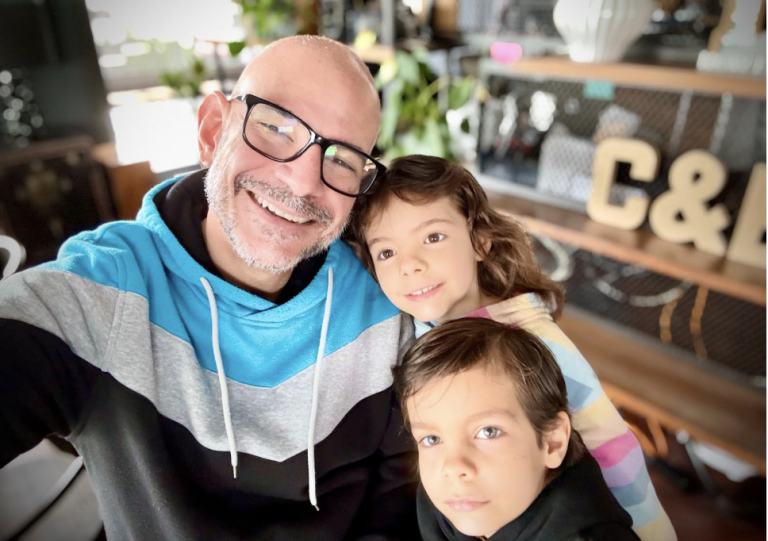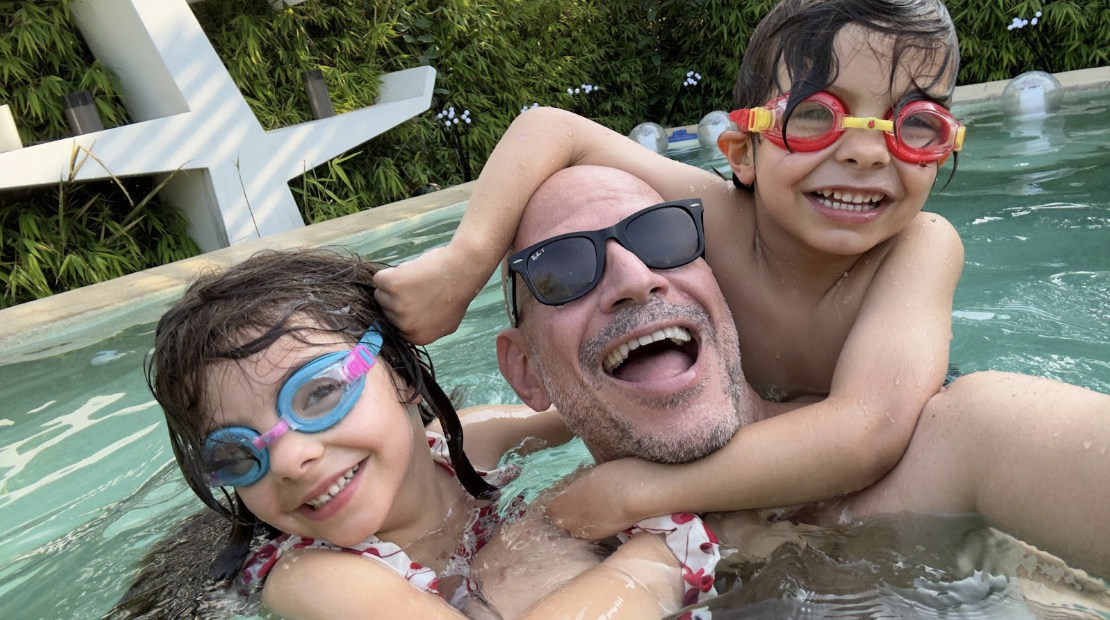
Insights
A Battle for Identity: The Case of the Morán Family in Peru
Region(s)
TOPIC(s)
Type
Commentary
Author(s)
Publish Date
May 15, 2025
Share
Ricardo Morán, a television producer, screenwriter, and one of Peru’s most well-known entertainment figures, is also an openly gay man and a vocal activist for LGBTIQ people’s human rights in a country with deep-rooted conservative traditions, where same-sex marriage and joint adoption by same-sex couples are not legally recognized.

For years, his personal and professional life had been under public scrutiny, but nothing could have prepared him for the legal battle he would have to fight after the birth of his children. When Emiliano and Catalina were born in 2019 through surrogacy in the United States, Morán assumed that his Peruvian nationality would be enough for his children to be recognized as Peruvian citizens, because the Peruvian Constitution explicitly states that any child born to a Peruvian parent acquires Peruvian nationality. However, bureaucracy and a restrictive interpretation of the law shut the door on him.
The Civil Registry’s rejection of Morán’s citizenship application for his children in May 2021 had immediate and serious consequences: since they were not recognized as Peruvian citizens, Emiliano and Catalina entered the country as tourists, meaning they were only allowed to stay for a maximum of 90 days. “During those four years, we had to leave the country several times to make sure my children didn’t break the law,” Morán recalls. His children risked being considered foreigners in their homeland, forced to leave the country or face a legal limbo that would leave them without basic rights.
The Bureaucratic Obstacle
Morán is the sole biological parent of the twins. Through gestational surrogacy, an anonymous donor provided the eggs and a different woman carried the pregnancy. In the United States, this process followed all established regulations, including a parentage order that legally recognized Morán as the children’s sole parent. With these documents in hand, he began the process of registering his children with the Civil Registry to obtain their Peruvian nationality. But the state had a different interpretation of the law.
The Civil Registry denied the registration with a clear argument: according to Peru’s Civil Code, a child cannot be registered solely with the father’s last name without listing the mother’s identity. Morán tried to explain that his children did not have a mother in legal terms, that the surrogacy process had been carried out under regulations in another country, and that the submitted documents proved this. But the response remained the same: the children could not be registered without a maternal name.
What should have been a routine administrative procedure turned into an arduous legal battle. “It was a very long journey. Four years full of obstacles. The Civil Registry said no, the courts said no, and we had to take it all the way to the Constitutional Court,” Morán says. “While all of this was happening, I had to keep thinking of Plan A, Plan B, and Plan C—because my children had to live, they had to have a life.” The uncertainty weighed heavily on him and his family. “The legal irregularity of my children’s situation affected us deeply: concerns, stress, anxiety. I wasn’t being productive and wasn’t focusing on being the best father I could be. There was a lot of love, and love solves things, but we weren’t doing well.”
At one point, the pressure became so great that Morán and his family considered drastic measures. “We even thought about emigrating,” he admits. The idea of leaving Peru—the country where he had built his career and life—was painful, but the well-being of his children came first.

A Landmark Ruling
Finally, in September 2023, Peru’s Constitutional Court ended the uncertainty. In a historic ruling, it declared the amparo lawsuit founded and ordered the Civil Registry to immediately register Emiliano and Catalina as Peruvian citizens, using their father’s last name. The ruling acknowledged that the state’s refusal had violated the children’s fundamental rights and that Peruvian law needed to adapt to the diverse family realities of the 21st century.
For Morán, the decision brought an immense sense of relief. “The ruling was a huge weight off my shoulders. It gave me peace and joy. It felt like we could finally stop running, stop boarding a plane every ninety days, discard all the other plans, and focus my life on what should always be my priority: taking care of my children.”
But the ruling was not just about his case. The Court also urged Congress to legislate on the registration of children with only one parent’s surname without requiring a maternal name—a measure that could benefit other families in similar situations. However, to this day, Congress has failed to comply with this order, leaving many others in legal uncertainty.

Parenthood as an Invitation to Be Better
For Morán, the fight for his children’s rights was just one part of his journey as a father. The real challenge, he says, is the daily commitment to raising them with love and values. “Having my children was life’s invitation to become a better person. Children don’t learn from what you tell them; they learn from what they see you do. If I want my kids to be kinder, they have to see me being kind. If I want them to read, they have to see me reading. If I want them to eat healthy, they have to see me eating healthy. Sometimes my daughter Catalina tells me, ‘Daddy, I haven’t seen you eat your veggies.’ And I have that phrase tattooed in my mind—every time I eat, I imagine my daughter reminding me about my veggies.”
His definition of family extends beyond just his children. “My family is my kids. But it’s also Milagros—the woman who helps me take care of them—[and] my mom, sister, brother, nephews, sister-in-law, and aunt. It’s my tribe.” He smiles as he reflects on the English expression it takes a village, which perfectly captures his view of parenthood: raising children is not a solitary journey, but a collective effort built on love and support.
This case is not only a milestone in recognizing family diversity in Peru but also highlights the state’s resistance to accepting new forms of parenthood. Yet for Ricardo Morán, the most important victory is not in the courts, but in the home he has built. After years of uncertainty, he can now do what any parent wants: focus on his children’s happiness, knowing they finally have the recognition they deserve.

Take Action
When you support our research, you support a growing global movement and celebrate LGBTIQ lives everywhere.
Donate Now